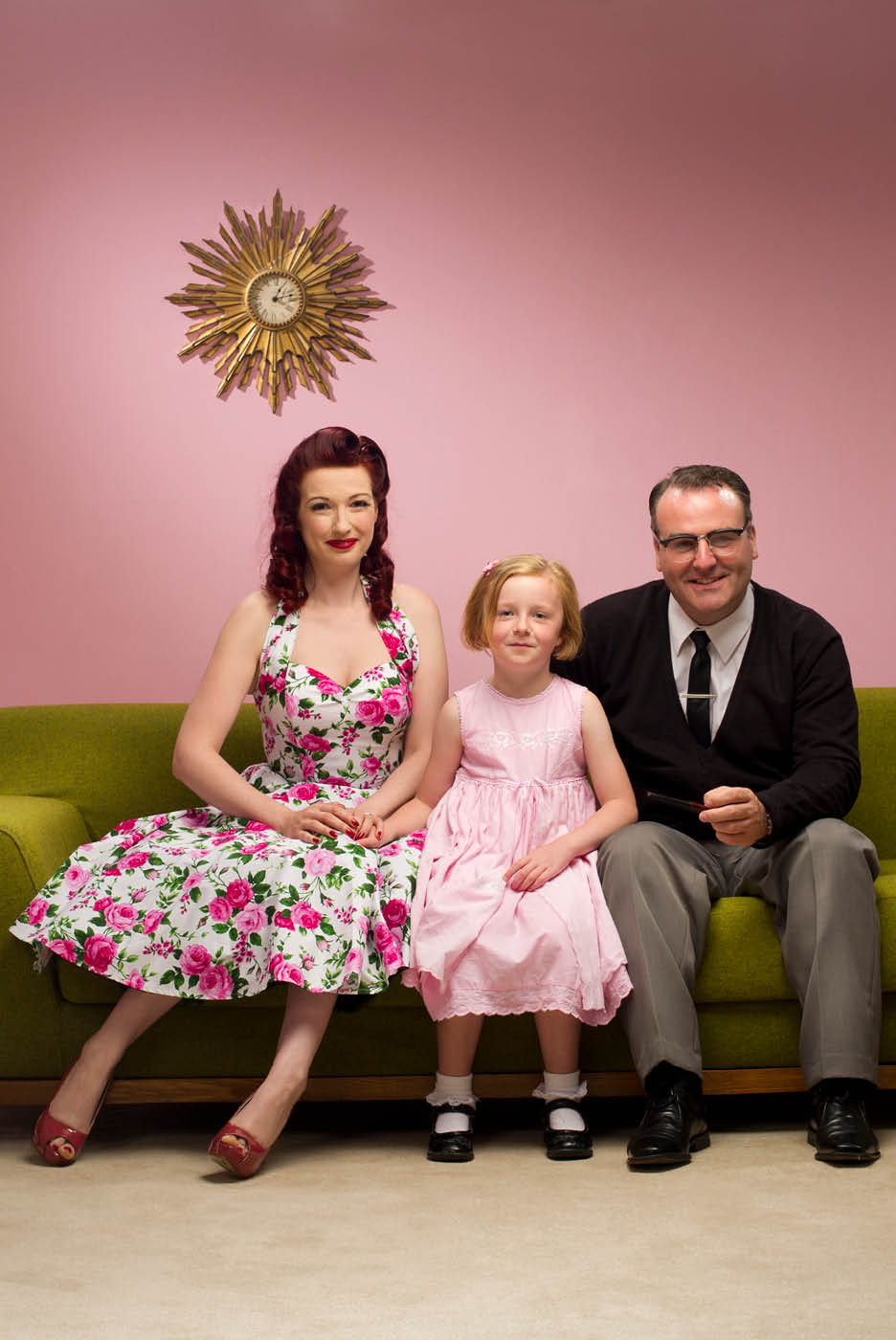“Can you help me, please?” mouths my friend to her husband, as she stands in the kitchen surrounded by plates of chips and cupcakes.
It’s a cold winter’s day and we’re at a party venue that the woman has booked and paid for. Kids are running around noisily, while her husband is at the other side of the room, talking to the dads.
He looks surprised. Food, served at a party? To children? Remarkable.
Before he’s moved more than a metre, four women have already swooped in. They hand out paper plates to small people. They call them by name. Later, on the party’s WhatsApp group, they will thank their friend for hosting them, despite working at the actual event.
I don’t help this woman. I’ve helped other women that day by taking their children to the event, my car full of kids with opinions on my music choices, and I’ll be tolerating their sugar-crash behaviour all the way home.
The husband is at the other side of the party venue, talking to the other dads
“Leave,” I want to say to her. “I call you an Uber.”
Another day, another gathering of women. An easy topic of conversation: how disappointing someone’s male partner is. He provides a fair bit of ammunition for criticism, this man. He gets my spidey senses going. I’m not sure how safe my friend is going home to him, or how happy she’ll feel being forever mortgaged to him, or what ideas their children will grow up with, based on their father’s total ineptitude.
“You have agency here,” I’m tempted to say. “Change it, or leave.”
Partly, I am tired of talking around this topic. Why don’t we truly talk about the fact that these women are working for free and covering for the mistakes they married, normalising the idea of man-babies bouncing through middle age without ever taking full responsibility for their families?
“Women do this thing where they bond over the crap husbands. It’s an outlet for their resentment,” says relationships counsellor Lissy Abrahams. “They probably want you to join in so that they can feel ‘It’s not just me in this shit.’”
Why don’t we actually talk about the fact that both of these women are working for free and covering for the mistakes they married?
Many couples start off equal, then pregnancy knocks them off-kilter, adds Abrahams. “The imbalance starts from that moment. There’s a hit to her career, and everything keeps on mounting into this space which is actually a horror show for women, but we’re not aware of it. We just keep on going.”
I told Abrahams that some of what I see in other people’s relationships triggers me. It reminds me of when I wasn’t safe, when I used to go to the police for help and come back empty. Listening to women share how they’re undervalued makes me go all fight-or-flighty. Like: leave, this just gets worse.
Abrahams asks me to separate some of my trauma from what I’m hearing.
“My question is always: what’s the pattern in the relationship? Is this someone who in the main is a very supportive partner but isn’t a magician [i.e. doesn’t know what his wife wants because she hasn’t told him]?” says Abrahams.
It reminds me of when I wasn’t safe
Here we go again, I reply. Having to recognise the problem, cope with it and then resolve it, all on our own time.
“I see a lot of women who are run ragged,” Abrahams adds. “They’re highly stressed and the husbands think they’re helping. And they are, compared to a 1950s husband who did nothing except earn the money.”
When I met my future husband, I fell fast. I told him just enough about my past to explain some things, but not scare him away. I didn’t go into massive detail about what it’s like to have panic attacks, or why I’m obsessive about safety wherever I live. I didn’t say: I am playing catch-up careerwise because I lost so much of my life already. I tried to say: I need looking after, although I can’t quite express why.
“I want to live with you, and I want children,” I said, pretty early on. Take that, relationship rulebooks! “But I don’t want to live in a 1950s domestic hellscape.”
That pattern has been broken in our home. Yes, every so often I lose my temper because I am Latin American and. We. Like. A. Clean. House. One year, he arranged every bit of our child’s birthday party and as they left, each guest thanked me for my hard work. I corrected them, they blinked, and ignored him.
I want to live with you, I don’t want to live in a 1950s domestic hellscape
It was as if their expectations of men’s contribution were so low that they couldn’t acknowledge an alternative. “We’ve been groomed that we need to be so good at everything, and that we have to hold ourselves together,” says Abrahams, “because what we really want to do is cry.”
I don’t know how some men convinced their partners that this is currently a dress rehearsal, and not the only life that they’ve got, but it makes me anxious.
I remember being ground down by my terrible relationship. No-one saw everything and I didn’t try to burden anyone with everything until it was too late. Then, nobody really helped me. The life I have now – with a man who doesn’t treat me like a slave or gaslight me when I say I dislike something or prioritise his mates over me or act like his career is more important than mine – is mine because I fought for it. I clawed my way back, each bout of low self-esteem, nervous breakdown and empty bank balance at a time.
When I had nowhere to stay, friends gave me a sofa. When I had no money, I walked to college. I was a nanny for a kid who had the chances I wanted, and I helped her mum have the career I didn’t know how to reach for.
I know more than most how difficult women’s circumstances can be, but many of us do have agency.
“The biggest thing I say to women is: ‘You’ve got to stop thinking that your husband needs to green-light the help you need. That is not their job.’ We need to say: ‘You don’t choose what I need right now. I’m telling you, [although] not out of contact with financial considerations.’”
Abrahams has her own experience of being burnt out and under-appreciated. “I was so unhappy that I went past a tree in a park and just held on to it! I had to learn that my life has to be more important to me than my partner’s, or our relationship.’
“Each time these relationships go on and on,” she adds. “They’re marching towards the one in three Australian marriages that end in divorce.”
Thanks to Abrahams, I have some ideas for next time I encounter what I call ‘everyday triggers’. I’m either going to recommend a friend do one of her online courses (there are two, on fighting less and communicating better), or I’m going to say: “My friend, I love you. But I can’t see what you’re living with and not say I’m worried.”
Also, I can walk away. My own experience has made me hyper-alert to potential red flags in other women’s relationships, but also less accepting of what they tolerate. I have done the work and paid the price.
I am living with my own grief about who I didn’t get to be. Sometimes I can’t take on other women’s grief, too.
Main image: Getty Images














No Comments